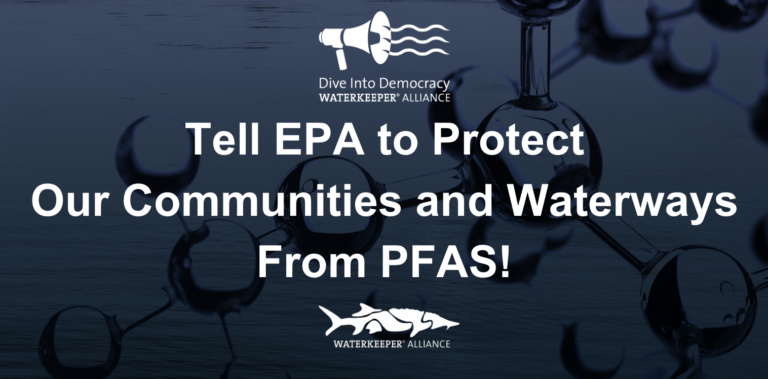Tell EPA to Protect Our Communities and Waterways From PFAS!
By: Thomas Hynes

The U.S. Environmental Protection Agency (EPA) is proposing to list nine additional PFAS compounds as hazardous. EPA must use its authority to protect communities and waterways from the well-documented risks associated with PFAS.
PFAS are commonly known as “forever chemicals” due to their persistent nature, meaning they can remain in the ecosystem without breaking down. PFAS are also bioaccumulative, meaning that over time, they build up in ever-increasing amounts in people, wildlife, aquatic life, and the wider environment.
PFAS have been widely used in manufacturing and consumer products — like nonstick cookware and water-resistant clothing — since at least the 1950s. These ‘forever chemicals’ are linked to increased incidence of cancer, liver and kidney disease, reproductive issues, immunodeficiencies, and hormonal disruptions.
Experts estimate that more than 200 million Americans are exposed to PFAS through drinking water. According to Waterkeeper Alliance’s nationwide PFAS contamination report from 2022, a staggering 83% of the surface water samples showed detection of at least one PFAS compound. Multiple PFAS compounds were often detected together and at very high levels.
The pervasiveness of PFAS contamination in the waste stream further compounds damage to the environment and human health when facilities fail to adequately manage the waste. From 2020 to 2021, PFAS releases in the U.S. increased by 500%, the majority of which was driven by the hazardous waste management sector. These unregulated releases endanger the sustainability of surface and groundwater supplies.
That is why we need to support EPA’s proposal to expand PFAS protections for the sake of our public drinking water supplies and public health.
Your support can encourage EPA to expand the number of PFAS compounds currently considered hazardous. This proposed rule is a critical step forward.
Leave your personalized comment today in support of these expanded PFAS protections!